Mercedes B Class vs Peugeot 308 - Differences and prices compared
Costs and Efficiency:
When it comes to price and running costs, the biggest differences usually appear. This is often where you see which car fits your budget better in the long run.
Peugeot 308 has a somewhat advantage in terms of price – it starts at 29200 £, while the Mercedes B Class costs 33100 £. That’s a price difference of around 3892 £.
Fuel consumption also shows a difference: Peugeot 308 manages with 2.30 L and is therefore slight more efficient than the Mercedes B Class with 2.50 L. The difference is about 0.20 L per 100 km.
As for range, the Peugeot 308 performs significantly better – achieving up to 450 km, about 367 km more than the Mercedes B Class.
Engine and Performance:
Under the bonnet, it becomes clear which model is tuned for sportiness and which one takes the lead when you hit the accelerator.
When it comes to engine power, the Mercedes B Class has a to a small extent edge – offering 238 HP compared to 195 HP. That’s roughly 43 HP more horsepower.
In acceleration from 0 to 100 km/h, the Mercedes B Class is a bit quicker – completing the sprint in 6.50 s, while the Peugeot 308 takes 7.60 s. That’s about 1.10 s faster.
In terms of top speed, the Mercedes B Class performs barely noticeable better – reaching 250 km/h, while the Peugeot 308 tops out at 225 km/h. The difference is around 25 km/h.
There’s also a difference in torque: Mercedes B Class pulls noticeable stronger with 450 Nm compared to 300 Nm. That’s about 150 Nm difference.
Space and Everyday Use:
Whether family car or daily driver – which one offers more room, flexibility and comfort?
Seats: offers more seating capacity – vs .
In curb weight, Mercedes B Class is minimal lighter – 1405 kg compared to 1453 kg. The difference is around 48 kg.
In terms of boot space, the Mercedes B Class offers barely noticeable more room – 455 L compared to 412 L. That’s a difference of about 43 L.
In maximum load capacity, the Mercedes B Class performs a bit better – up to 1540 L, which is about 217 L more than the Peugeot 308.
When it comes to payload, Mercedes B Class minimal takes the win – 550 kg compared to 503 kg. That’s a difference of about 47 kg.
Who comes out on top?
Overall, the Mercedes B Class shows itself to be secures victory with a clear margin and secures the title of DriveDuel Champion.
It convinces with the more balanced overall package and proves to be the more versatile choice for everyday use.
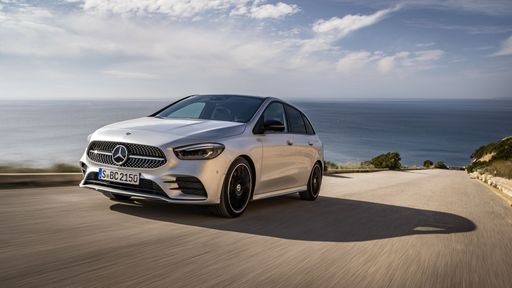 @ Mercedes-Benz Group Media
@ Mercedes-Benz Group Media
Mercedes B Class
Costs and Consumption
View detailed analysis
Engine and Performance
View detailed analysis
Dimensions and Body
View detailed analysis
Mercedes B Class
The Mercedes B-Class is a smart, grown-up compact people carrier that dresses everyday practicality in a near‑premium polish, perfect for buyers who want comfort and a classy badge without the theatrics. It won’t set your pulse racing on a back road, but it will make school runs, commutes and grocery hauls feel pleasantly civilized — a reliable, slightly posh companion for real life.
details @ Mercedes-Benz Group Media
@ Mercedes-Benz Group Media
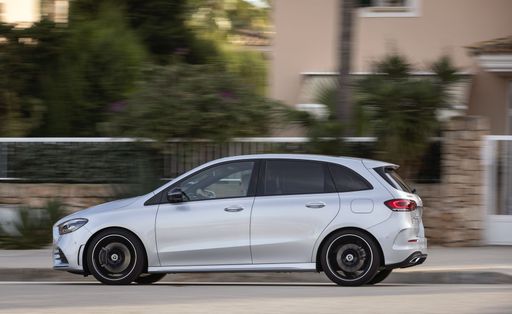 @ Mercedes-Benz Group Media
@ Mercedes-Benz Group Media
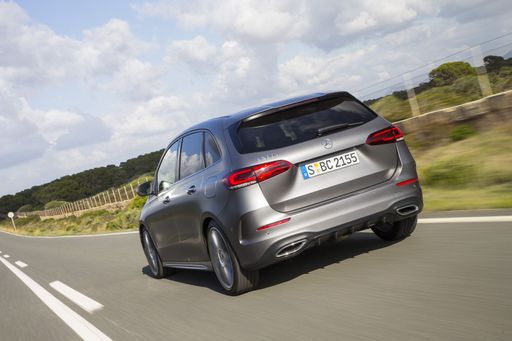 @ Mercedes-Benz Group Media
@ Mercedes-Benz Group Media
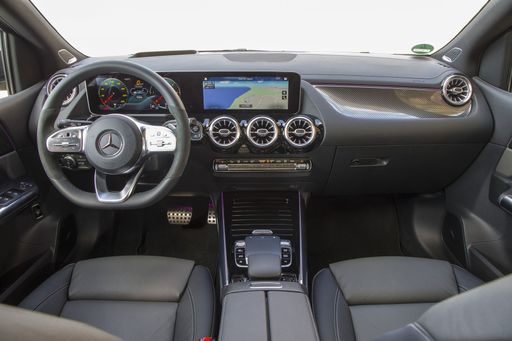 @ Mercedes-Benz Group Media
@ Mercedes-Benz Group Media
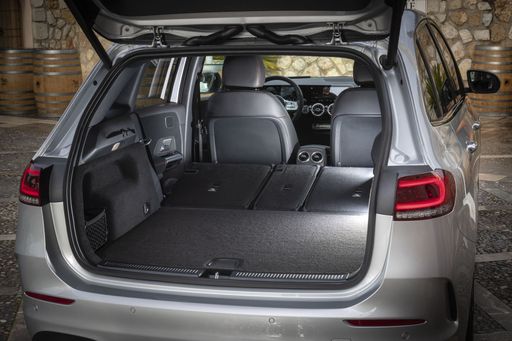 @ Mercedes-Benz Group Media
@ Mercedes-Benz Group Media
Peugeot 308
The Peugeot 308 brings a sleek, feline profile and an unexpectedly upscale cabin, with clever packaging and materials that feel a touch more premium than you might expect. It’s composed on the road, easy to live with for daily life, and a smart choice if you want a stylish hatch that still behaves when the road gets interesting.
details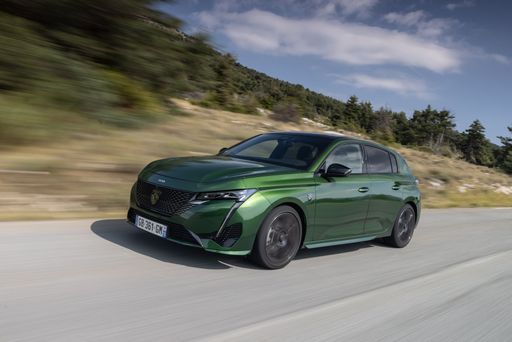 @ Peugeot / Stellantis Media
@ Peugeot / Stellantis Media
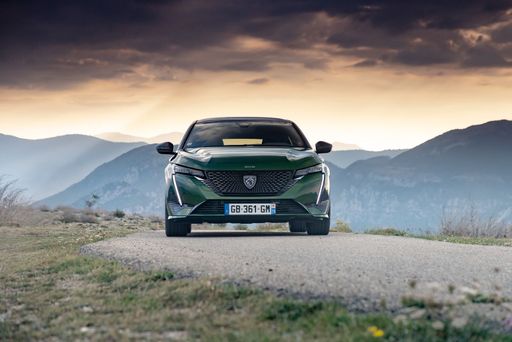 @ Peugeot / Stellantis Media
@ Peugeot / Stellantis Media
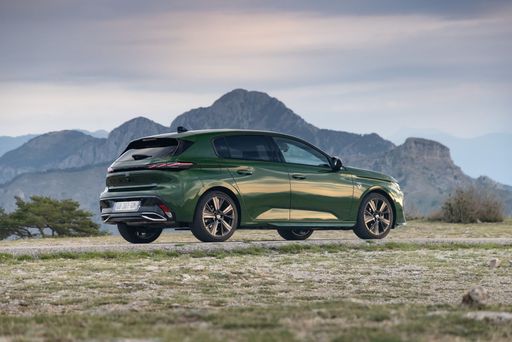 @ Peugeot / Stellantis Media
@ Peugeot / Stellantis Media
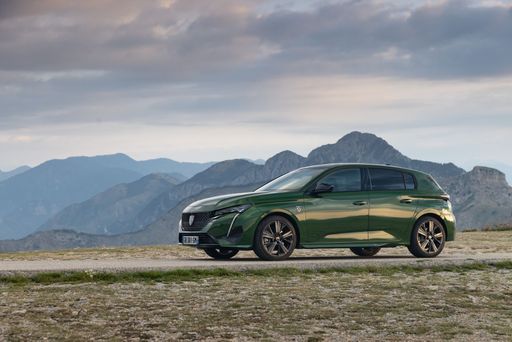 @ Peugeot / Stellantis Media
@ Peugeot / Stellantis Media
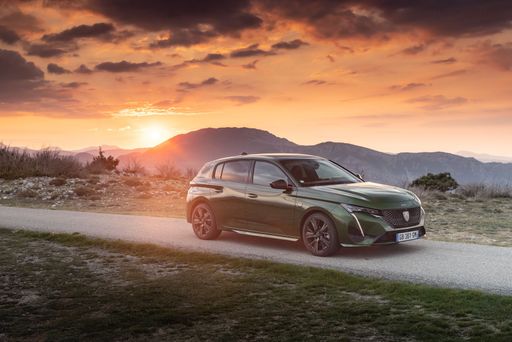 @ Peugeot / Stellantis Media
@ Peugeot / Stellantis Media
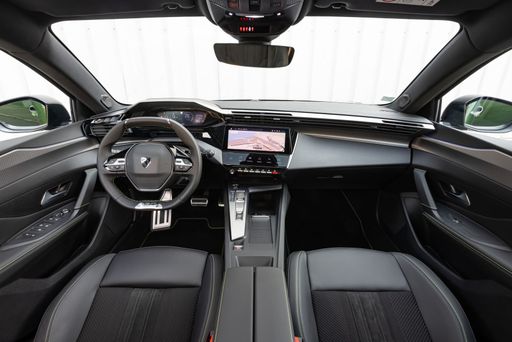 @ Peugeot / Stellantis Media
@ Peugeot / Stellantis Media
 @ Mercedes-Benz Group Media
@ Mercedes-Benz Group Media
|
 @ Peugeot / Stellantis Media
@ Peugeot / Stellantis Media
|
|
|
|
Costs and Consumption |
|
|---|---|
|
Price
33100 - 52500 £
|
Price
29200 - 42600 £
|
|
Consumption L/100km
2.5 - 6.9 L
|
Consumption L/100km
2.3 - 5 L
|
|
Consumption kWh/100km
-
|
Consumption kWh/100km
15.60 kWh
|
|
Electric Range
83 km
|
Electric Range
78 - 450 km
|
|
Battery Capacity
12.90 kWh
|
Battery Capacity
0.40 kWh
|
|
co2
56 - 156 g/km
|
co2
0 - 129 g/km
|
|
Fuel tank capacity
35 - 51 L
|
Fuel tank capacity
42 - 52 L
|
Dimensions and Body |
|
|---|---|
|
Body Type
MPV
|
Body Type
Hatchback
|
|
Seats
5
|
Seats
5
|
|
Doors
5
|
Doors
5
|
|
Curb weight
1405 - 1745 kg
|
Curb weight
1453 - 1749 kg
|
|
Trunk capacity
405 - 455 L
|
Trunk capacity
314 - 412 L
|
|
Length
4419 mm
|
Length
4367 mm
|
|
Width
1796 mm
|
Width
1852 mm
|
|
Height
1562 mm
|
Height
1438 mm
|
|
Max trunk capacity
1440 - 1540 L
|
Max trunk capacity
1258 - 1323 L
|
|
Payload
505 - 550 kg
|
Payload
430 - 503 kg
|
Engine and Performance |
|
|---|---|
|
Engine Type
Plugin Hybrid, Petrol MHEV, Diesel
|
Engine Type
Petrol MHEV, Diesel, Plugin Hybrid, Electric
|
|
Transmission
Automatic
|
Transmission
Automatic
|
|
Transmission Detail
Dual-Clutch Automatic
|
Transmission Detail
Dual-Clutch Automatic, Automatic Gearbox, Reduction Gearbox
|
|
Drive Type
Front-Wheel Drive, All-Wheel Drive
|
Drive Type
Front-Wheel Drive
|
|
Power HP
116 - 238 HP
|
Power HP
131 - 195 HP
|
|
Acceleration 0-100km/h
6.5 - 10 s
|
Acceleration 0-100km/h
7.6 - 10.6 s
|
|
Max Speed
200 - 250 km/h
|
Max Speed
170 - 225 km/h
|
|
Torque
200 - 450 Nm
|
Torque
230 - 300 Nm
|
|
Number of Cylinders
4
|
Number of Cylinders
3 - 4
|
|
Power kW
85 - 175 kW
|
Power kW
96 - 144 kW
|
|
Engine capacity
1332 - 1991 cm3
|
Engine capacity
1199 - 1598 cm3
|
General |
|
|---|---|
|
Model Year
2024 - 2025
|
Model Year
2025
|
|
CO2 Efficiency Class
B, D, E, F
|
CO2 Efficiency Class
C, D, B, A
|
|
Brand
Mercedes-Benz
|
Brand
Peugeot
|
What drivetrain options does the Mercedes B Class have?
The Mercedes B Class is offered with Front-Wheel Drive or All-Wheel Drive.
The prices and data displayed are estimates based on German list prices and may vary by country. This information is not legally binding.
